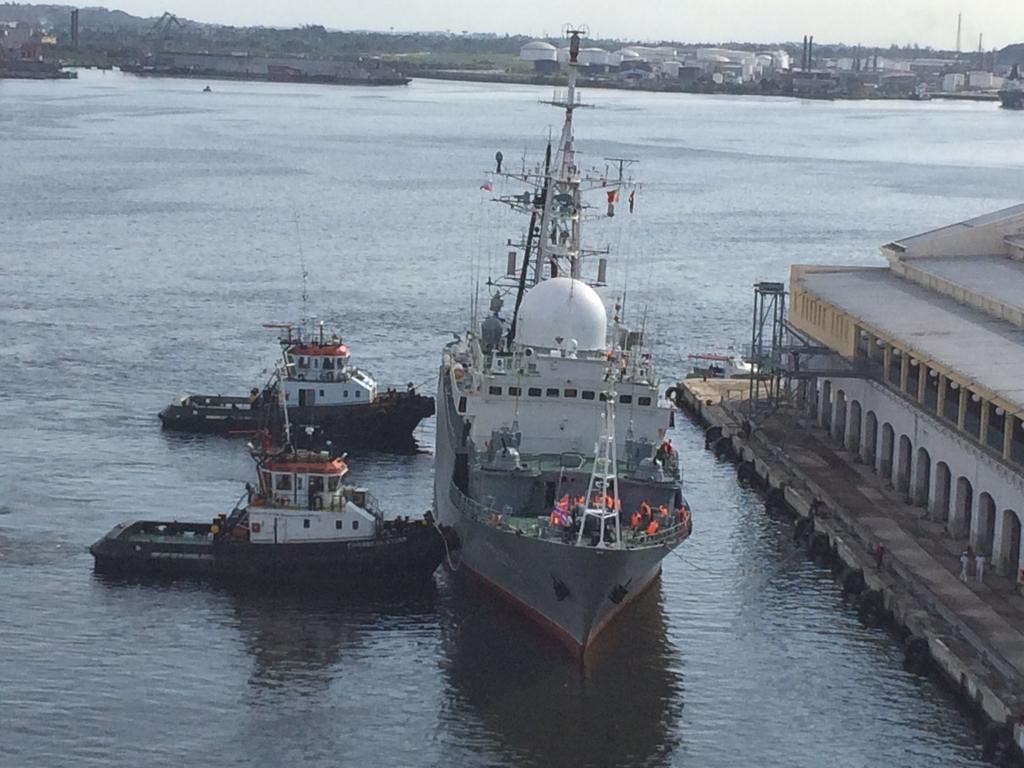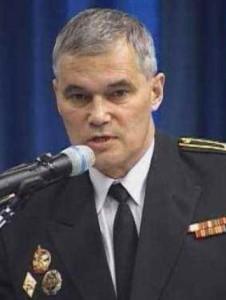
Russian vessel’s message: ‘Don’t ignore us’
Eyebrows went up everywhere on Tuesday (Jan. 20) when a Russian intelligence ship docked in Havana on the eve of the diplomatic talks between Cuba and the United States. Its arrival had not been previously announced by either the Cuban or the Russian government.
It wasn’t the first time that the Viktor Leonov had visited the Cuban capital. It had made similar unannounced stopovers in February and March of 2014. This week’s arrival drew more attention. Was it a coincidence that it took place at such a watershed moment in Cuba-U.S. relations or was it an “in your face” gesture by Russian President Vladimir Putin to President Obama?

Some observers — myself included — saw it as a not-so-subtle reminder that Russia has made a major investment in Cuba and plans to hold on to its gains no matter what inroads the U.S. makes in Cuba.
“The Cuban government is trying to reduce political tensions with the United States,” said Konstantin Sivkov, president of the Academy of Geopolitical Problems, in an interview with the Russian Free Press agency, but in the process is “departing from the principles of socialism and tolerating in its territory elements of capitalism.”
An improvement in relations “would allow the U.S. to consider Cuba as a country about to open to capitalist society. Washington seeks to consolidate and strengthen this trend, since Cuba’s transition — on capitalist rails — would mean its separation from Russia.”
“Cuba is striving to create a more favorable environment for its development,” Sivkov continues. For a long time, it relied completely on the Soviet Union “but [Boris] Yeltsin’s Russia put Cuba in a situation of very hard economic survival.
“Havana believes that that situation could be repeated if another Boris Yeltsin comes to power in Russia. That is why Cuba seeks to diversify its political and economic ties with the United States.”
Right now, “Russia’s position in Cuba is much better than the United States’ — and we just need to protect it,” Sivkov sums up.

And that is why Moscow is reminding everyone that it is still the thousand-pound bear in the middle of the room.
As Aleksei Makarkin, deputy director of the Center for Political Technologies in Moscow, told The Christian Science Monitor, Washington is trying “to maximize the penetration of democratic ideas” in Cuba; Havana is trying to open up “yet still maintaining its regime and relations with Russia,” and “Moscow wants to maintain its ties with Cuba too.”
The Viktor Leonov’s presence in Havana “sends a clear message to the arriving U.S. delegation,” the newspaper says. “You’re welcome, but Russia is still welcome here as well.”
Aleksandr Konovalov, president of the Institute of Strategic Assessments in Moscow, agrees with that assessment. The ship’s visit “at such a sensitive moment clearly carries a strong political message,” he tells the CSM.
Alluding to Russian government hardliners, Konovalov calls the ship’s presence “clearly a victory for those in the Kremlin who want to derail any hopes of improvement in U.S.-Russia relations. And it marks one more small downward notch in a generally deteriorating picture.”
Meanwhile, the U.S. and Cuba are going to great lengths to minimize the significance of the ship’s visit. Cuba’s official press has not mentioned it, and an unidentified Pentagon official told the French news agency AFP that “it’s not unprecedented, it’s not unusual and it’s not alarming.”
In Moscow, an unidentified source at Northern Fleet headquarters told the Russian agency Tass that the ship was “performing routine tasks in the Caribbean” and stopped in Havana for three days “to resupply” — the same three days that the U.S. delegation would be there.
The Viktor Leonov is an Vishnya-class electronic surveillance ship that has been gathering intelligence along the eastern coast of the United States for a while. It monitors military and some civilian communications and regularly patrols the North Atlantic and the Caribbean.
Built in Poland in 1988, it has a 200-man crew. Its hull designation is SSV-175 (CCB-175 in Cyrillic alphabet), where SSV stands for Sudno Svyazey, or Communications Vessel. It is named after a Navy officer who twice received the Hero of the Soviet Union medal for his World War Two exploits in the Soviet Naval Scouts, the equivalent of the U.S. Navy SEALS.


